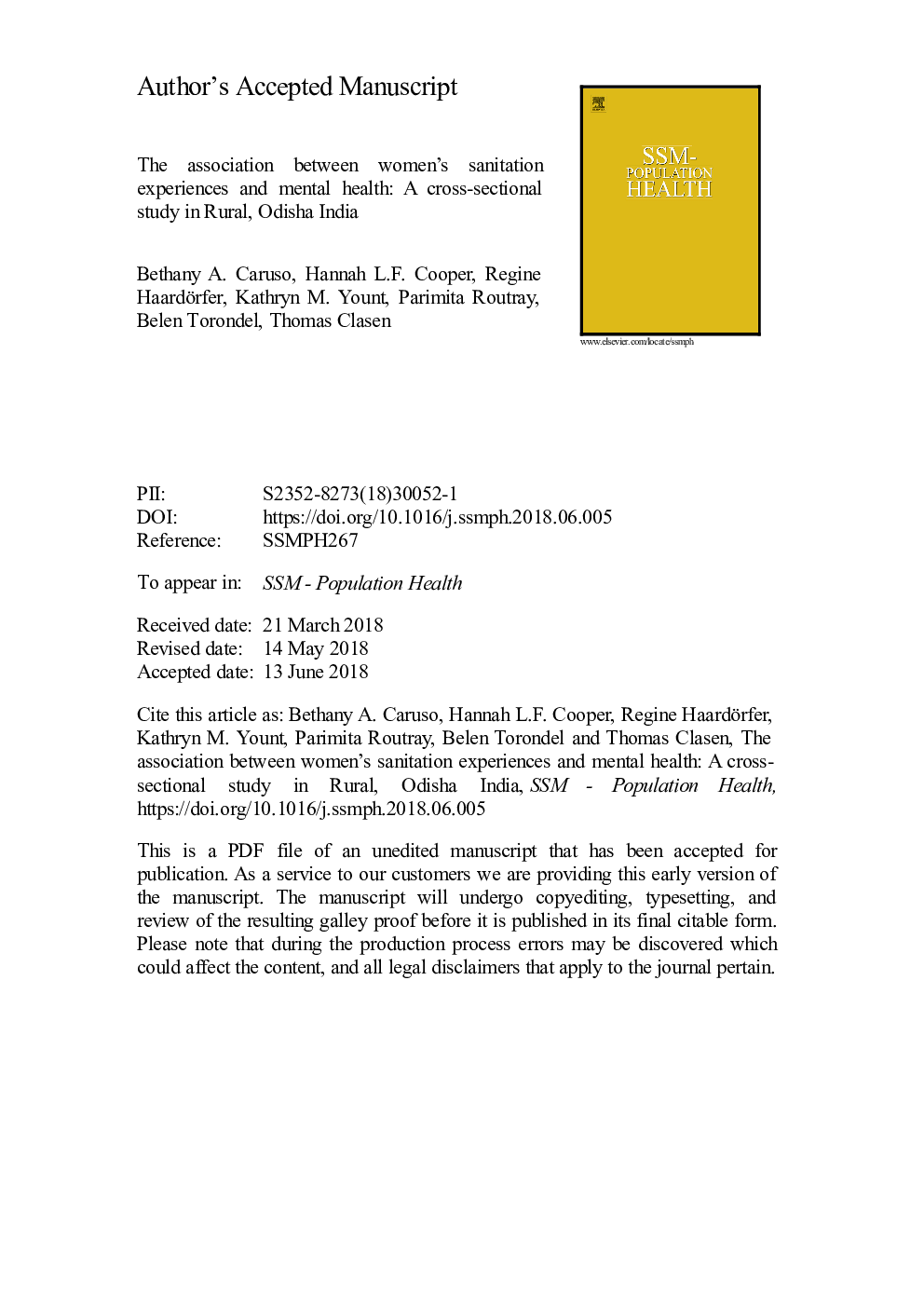| Article ID | Journal | Published Year | Pages | File Type |
|---|---|---|---|---|
| 7528051 | SSM - Population Health | 2018 | 35 Pages |
Abstract
Emerging qualitative research suggests women's sanitation experiences may impact mental health. However, specific associations remain unclear. We aimed to determine if sanitation access and sanitation experiences were associated with mental health among women in rural Odisha, India. Using a cross-sectional design, we evaluated the association between sanitation access and sanitation experiences and selected mental health outcomes. Data were collected from 1347 randomly selected women across four life course stages in 60 rural communities (December 2014-February 2015). Our four primary outcomes included: mental well-being, and symptoms of anxiety, depression, and distress. The primary exposures were (1) access to a functional latrine within the household compound and (2) sanitation insecurity (SI), evaluated using a seven domain measure assessing women's negative sanitation experiences and concerns. We used hierarchical linear modeling to determine associations between the exposures and mental health outcomes, adjusting for covariates (life stage, poverty, current health status, social support). Mean well-being scores were moderate and mean anxiety, depression, and distress scores were above a threshold indicating the potential presence of any of the three conditions. Access to a functional household latrine was associated with higher well-being scores, but not with anxiety, depression or distress. Women's SI domains were associated with all four outcomes: four domains were significantly associated with lower well-being scores, two were significantly associated with higher anxiety scores, three were significantly associated with higher depression scores, and three were significantly associated with higher distress scores, all independent of functional household latrine access. Women in rural Odisha, India may suffer assaults to their well-being and have higher symptoms of anxiety, depression, and distress when urinating and defecating, even if they have an available facility. These findings suggest that sanitation-related interventions should consider how to accommodate women's experiences beyond excreta management to comprehensively impact health.
Related Topics
Social Sciences and Humanities
Social Sciences
Health
Authors
Bethany A. Caruso, Hannah L.F. Cooper, Regine Haardörfer, Kathryn M. Yount, Parimita Routray, Belen Torondel, Thomas Clasen,
